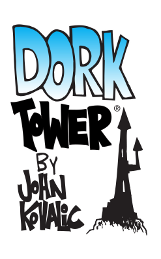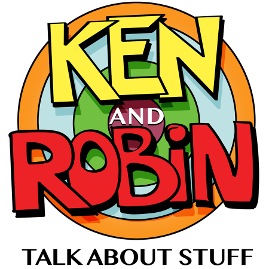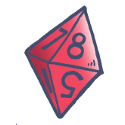Episode 38: Driving Bananas Around
May 10th, 2013 | Robin
 We start with a visit to the Gaming Hut to discuss the play utility of illustrations.
We start with a visit to the Gaming Hut to discuss the play utility of illustrations.
In the Food Hut we explore the legends and lore of packaged goods, including the secret origins of Cool Whip, the Twinkie, and Gatorade.
Conrad Kinch Asks Ken and Robin how one guides a playtester to greatness. Michael Cule adds a supplemental: have we ever regretted not implementing a piece of playtester advice?
Finally, Ken’s Time Machine takes us to the intractable yet little mythologized tragedy that was the Trail of Tears.
Podcast: Play in new window | Download
















I didn’t playtest the GUMSHOE auction mechanics although I may have whined about them to Simon.
Have either of you read the new urban fantasy novel London Falling by Paul Cornell? It’s about an undercover police team that gains The Sight and uses their detective training and equipment to tackle the supernatural. It reads like someone mashed up GUMSHOE and DramaSystem, had a great campaign, then paid an equally great writer to novelize it.
And for an Ask Ken and Robin that isn’t just a yes/no answer: We’re living in an explosion of new design, innovation, and creativity. Is this a bubble set to burst? If so, what might that look like and what might cause it? Or do you think crowdfunding, digital distribution, and the other factors involved will create a long-term equilibrium instead?
Re: Food Hut. You did not mention that Soylent Green is PEOPLE!!!, a perfect example of the sinister food trope.
In further news, there will be no Twinkies after the Zombie Apocalypse (ref. Zombieland), and since Twinkies have ceased production that just shows that the post-apocalyptic landscape is remarkably similar to its pre-apocalyptic condition. Perhaps all the various predictions of the apocalypse happening on such-and-such a date were all correct and nobody noticed.
Shotguns v Cthulhu has a story featuring sinister food, which anthology Robin failed to plug. Tsk.
Thank you very much chaps for your wise words on playtesting. If I could be very cheeky and follow your answer with yet another question.
What have you learned about playtesting scenarios/campaigns rather than rulesets? Is there any advice you would give to those who are hoping to get material playtested?
More likely result of no Cherokee removal: large chunks of land in the South are ALREADY theoretically sovereign bodies where slavery is tolerated, so the Northern response to South Carolina’s secession in 1860 (or whenever, in this timeline) is simply acquiescence leavened with moral smugness.
(The independent CSA promptly gets itself embroiled in disastrous wars with Mexico and Nicaragua, and winds up a de facto colony of Britain and France; probably abolishes slavery about the same time as Brazil, and likely fissions into multiple smaller states along the way.)
Gee, thanks for the ego-boo fellas.
I think.
If I was (and oh I was) theatrically upset by my experience in playtesting HERO WARS (as it then was) it’s because I loved the promise of the system and so many parts of it seemed to me to be perfect tools for a group to create great gaming.
If I didn’t feel that way I wouldn’t have tried to run again twice (in it’s HEROQUEST 1 incarnation) with my two gaming groups and failed again. Twice. I’ve managed to alienate my players on this topic and exhausted their patience. Alas. Perhaps some day I will try again, perhaps using it on-line, an environment where it might work better.
But the central mechanics which do indeed reflect Robin’s design assumptions I find hard to use to create an involving, immersing game and around my table I ran into the point where we said “we can’t make this work” and “this really doesn’t make sense” every time.
Nowadays, I try to limit myself to settings or systems I think I will be sympathetic with, a skill my experience with HERO WARS helped form.
Robin did take one bit of advice I remember delivering quite firmly. Presumably others delivered it too. In the first playtest, the traits went down as they got better, like a golf handicap. Later versions increased the trait, something that I thought more intuitive.
I had a ask Ken & Robin question but I forgot what it was….it sucks getting old. 🙁
On the subject of Kellogg, British readers may recall one of his spiritual kin, Stanley Green – who as a sailor in WWII was so shocked by the libidinous attitudes of his comrades that he dedicated the rest of his life (from 1968 until his death in 1993) to stamping out erotic excess by means of diet. He did this both through home-printed pamphlets and by walking around central London in a sandwich board. One of those boards, with his usual refrain of “Less Passion from Less Protein”, is now in the Museum of London.
My experience as a playtester (mostly for GURPS) is that focus is needed. Yes, you can say “here’s the manuscript, here’s a month, tell me what’s wrong with it”, but particularly in a crunch-heavy book there needs to be a playtest leader (preferably not the author) who directs people by saying “try out this system”.
Ken: thank you for standing up for the Health benefits of Gin and Tonic. Long overdue.
Stopping the A-bombings that ended WWII is a BAD idea. Stalin’s would’ve occupied Northern Japan. MacArthur’s democratizing of the Japanese people would’ve been dangerously affected by Russian influence. Meanwhile, Japanese ex-military members may start a “stabbed in the back” campaign like German militarists in 1919. The latter case would happen if there is no invasion of the home islands.
My wife and I have a personal, some may call it selfish, stake in leaving the end of WWII as it now stands. Both our fathers were in the military. My wife’s dad was on an escort carrier in the Pacific. My Dad was in the 101st airborne. The 101st had been personally volunteered by General Taylor to be used in an invasion of Japan. There is a good chance both of our fathers would’ve been killed. The total US casualties for an invasion has been determined to be around one million.
So let the bombs fall.
Disclaimer: this podcast cannot be held responsible for any listeners who happen to get erased from the timeline.
The Japanese government saw the writing on the wall and decided that it was better to be unified and occupied by the Yanks rather than divided between the Russians and the Yanks, as happened to Germany. Nuking them made no difference. If destroying cities with aerial bombing could have made a difference, the conventional bombing raids would have forced Britain (or later, Germany) to surrender.
If atomic bombings “made no difference” then why did it take TWO to bring Japan to the surrender table?
On the hypothesis that brands that create their niches tend to dominate them for decades: obviously, Dungeons & Dragons created medieval fantasy role-playing and (I assume) continues to dominate the genre. How about some other RPG genres, what game created each one and is it still dominant? Sci-fi, post-apocalyptic, horror (and is “vampire” a genre all its own?), detective, wild West (does anyone play cowboy RPGs anymore?),…?
The internet makes it so easy to seek out the kinds of games that I like to play, that I have no idea what else is out there and which are the market leaders.
I think one could readily argue that Call of Cthulhu (1981) is still the iconic horror game in spite of having had only minimal revisions since its first publication – or perhaps because of that? Nobody bothers about edition wars! In any case, I believe it was the first horror game; Stalking the Night Fantastic came out in 1983, and Chill in 1984. (And yes, I wouldn’t call the you-are-the-monster games horror in the same sense, but there still seem to be plenty of Vampire players.)
Insofar as there’s an iconic SF game, it’s probably still Traveller, though it’s a very fragmented community and reports of the new edition are distinctly unfavourable. In the early days (from 1977) it was clearly dominant.
Post-apocalyptic is a harder question. The one I heard about most was Twilight: 2000 but there were pockets of hardcore Aftermath fans. Not sure there are enough players who favour this genre for there to be a dominant game now. Same with wild west and (non-weird) detective games.
When you say “new edition” of Traveller, are you referring to the Mongoose version or Marc Miller’s 5th ed? Because I wasn’t aware that anyone had gotten to see the later yet and if you have heard reports of it I’m curious exactly what they say.
There do seem to be some reviews out there, mostly written by Kickstarter backers who got their copies early. Searching for traveller, t5, review seems to locate them, and there are others out there that I can’t locate right now. The general consensus of what I’ve read seems to be “lots of stuff, especially construction systems, but horribly badly organised, no index, and while there may be a playable game in this 600-page book I haven’t found it yet”.
On the other hand, some people love it.
This is what I meant by “fragmented”, really: you’ve got your T5 fans, you’ve got your Mongoose Traveller fans, you’ve got your GURPS Traveller fans, then you’ve got smaller numbers of fans of every iteration of the system right back to the beginning (there’s probably someone out there still playing T20). T5 may have been intended to bring them all back into the fold, like D&D Next, but it doesn’t seem to be doing so.
Bibliography (for the Trial of Tears section):
Robert Remini – Andrew Jackson (specific book not mentioned, but this one seems like the most likely candidate).
Eric Flint – 1812: The Rivers of War (The Trail of Glory)
I would like to borrow Ken’s Time Machine to go back and edit my typo please. Didn’t mean to make it all bold.
Here you go. Fill it up before you bring it back. And NO PARTIES.